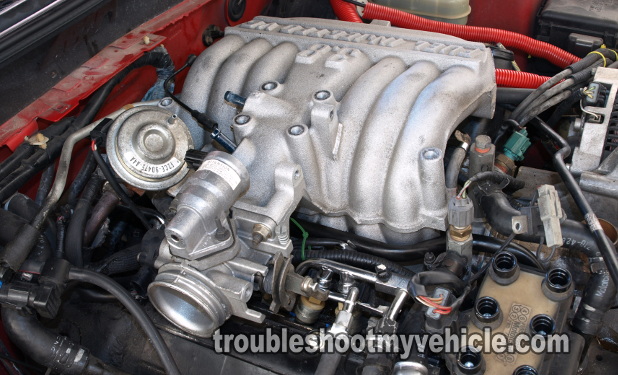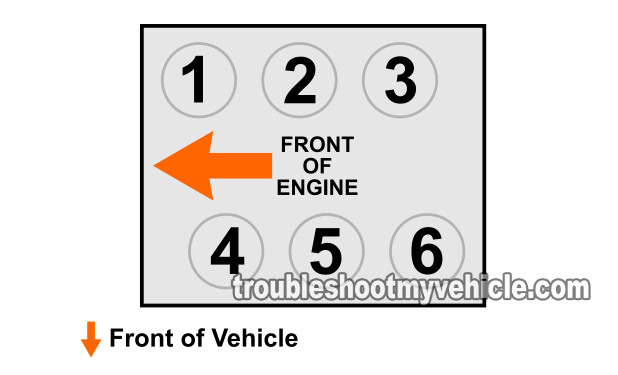
A fuel injector going bad is rare, but it does happen. I have run across this situation every now and then myself. If you need an effective, but simple fuel injector test, this article will help you.
This is an on-car test of the fuel injectors on any Ford 3.0L or 3.8L V6 engine equipped vehicle and is a step-by-step fuel injector resistance test done with a multimeter in Ohms mode.
Lastly, this article is geared towards solving a hard to diagnose rough idle and/or misfire code (P0300, P0301, P0302, P303, P0304, P0305, P0306 -if your Ford vehicle is OBD II equipped). The few times I've had to replace a bad fuel injector, the vehicle never set a true fuel injector diagnostic trouble code, only a misfire code that had nothing to do with the ignition system.
Contents of this tutorial:
ES ![]() You can find this tutorial in Spanish here: Cómo Probar Los Inyectores De Combustible (Ford 3.0L, 3.8L) (at: autotecnico-online.com).
You can find this tutorial in Spanish here: Cómo Probar Los Inyectores De Combustible (Ford 3.0L, 3.8L) (at: autotecnico-online.com).
Tools You'll Need:
- Multimeter
- Pen and Paper
The Fuel Injector Test

To get an accurate test result of the condition of the fuel injector on your Ford (or Mercury or Lincoln) vehicle, the engine has to be warmed up but not hot.
What I mean, to be a bit more specific, is that if the engine has been running for an extended amount of time, you'll need to let it cool down about one hour. If the engine is completely cold, you'll need to start it up and let it run for about 20 minutes.
If you have a scan tool, you can verify the engine coolant temperature reading and it should be around 100° F. OK, one last thing, you'll need to remove the upper intake manifold plenum. As you might already know, three of the six fuel injectors are hidden under this bad boy (if you need to remove the intake manifold plenum, read the Important Tips section). Alright, enough talking, here's the test:
- 1
Disconnect all six fuel injectors from their electrical connectors.
You may just want to test just one fuel injector and of course you don't have to test them all, but if you do have the intake manifold plenum off of the intake manifold, I suggest you test them all. - 2
Alright, now with your multimeter in Ohms mode, probe each fuel injector. You'll do this by probing the fuel injectors male spade terminals with the multimeter's test leads.
- 3
It doesn't matter what color test lead you use to test either of the two fuel injector male spade terminals, the polarity of the leads is not important when testing the resistance of the fuel injectors.
- 4
As you measure the internal resistance of each fuel injector, write this measurement down on a piece of paper. Remember to also identify what engine cylinder this fuel injector belongs to (you can use the image above to find out what cylinder is what).
- 5
The fuel injector resistance will be about 11-18 Ohms. On your particular Ford vehicle, it may be different but don't worry about this too much for now. OK, repeat test steps 1 through 4 on the remaining fuel injectors.
Continued in the next page.
